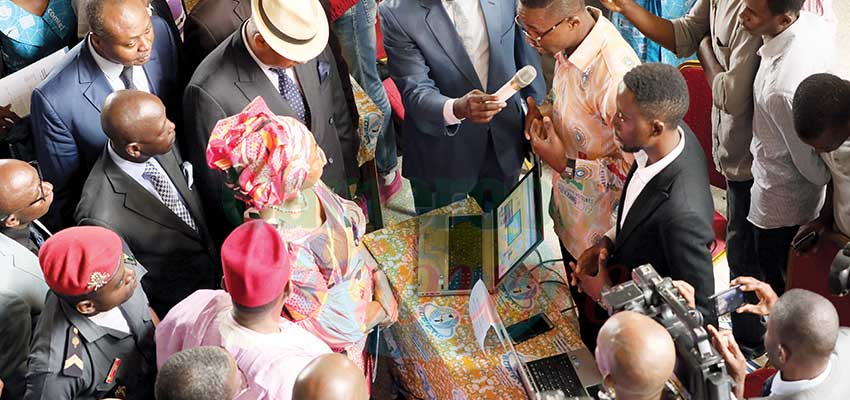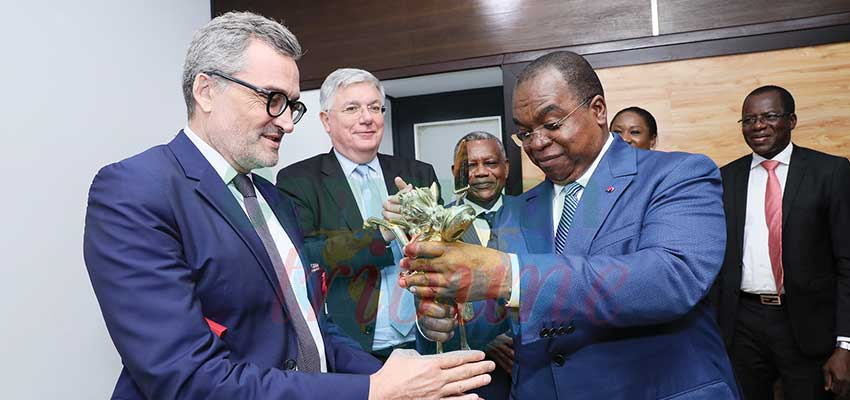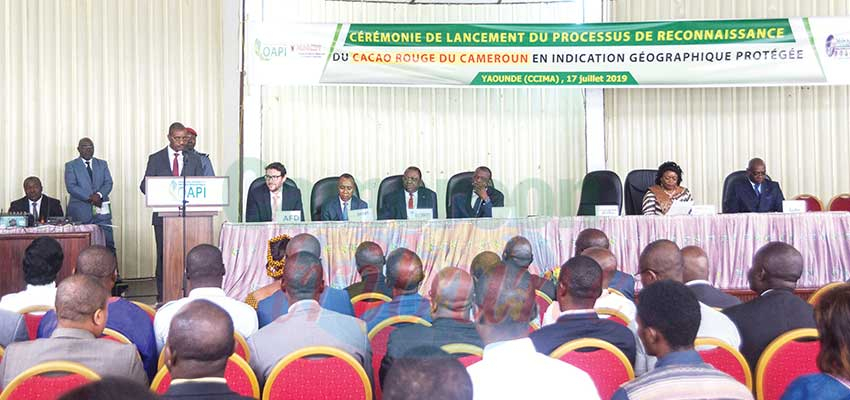
Placed under the patronage of President Paul Biya, the contest is holding at a time government has made the development of ICTs a strategic priority in its ambitions to become an emerging economy by 2035.
The five-day ‘ICT Innovation Week’ taking place on the campus of the National Advanced School of Posts, Telecommunications and Information and Communications Technology (SUP’PTIC) in Yaounde, has been officially opened. The special event, holding for the first time, and placed under the patronage of President Paul Biya, is being staged under the theme: “Innovate, create, and above all dare: Which appropriations and what prospects for this call of the Head of State.”
Minette Libom Li Likeng, Minister of Posts and Telecommunications, who presided over the officially opening ceremony, called on all and sundry to join the band wagon as ICTs are a veritable catalyst for the economy.
The National Competition for Best Digital Innovation Project of the Year is the flagship in the ‘ICT Innovation Week’. Fifteen projects have been shortlisted out of some 272 entries from across the national territory. The winners will be awarded cash prizes, in addition to the mentorship all the finalists have been receiving from sector experts. A special award - Special Prize of the President of the Republic - will be awarded to the best project, officials said.
The contest is holding at a time government has made the development of information and communication technologies a strategic priority. The country’s economic blueprint, Vision 2035, clearly spells out this ambition. The government, under President Paul Biya, vowed to invest heavily in digital infrastructure and “multiply by 50 the number of direct and indirect employment positions” in ICT between 2010 and 2020. And for better, the government has been striving to achieve this.
In 2016, President Biya made headlines after he promised one laptop for each some 500,000 university students. The laptops branded PB HEV (Paul Biya – Higher Education Vision), each with an Intel Atom Z8350, Microsoft window 10 system and office 365 software, were in earnest handed to students in higher institutes of learning across the country and the distribution has continued. The aim is to assist students connect to the cyberspace to tap the latest knowledge and enhance their studies and assure success, as well as drive the country’s digital economy.
The government has also put in lots of efforts in developing in its optic fibre backbone under the National Broadband II Programme. Pierre Paul Njonga, Coordinator of the National Broadband II Programme had said “Cameroon was using about 60 gigabits per second, making us to browse 400 times slower than when we will be at 32 terabits per second.” Internet connection in the country is now much cheaper, secure, smoother, easier and faster, bringing about economic benefits, as compared to the early 2000s.
Government’s efforts in scaling up the digital economy and spurring innovations in the sector has also been in the form of technical and financial support. The support to techies, incubators and start-ups have been encouraging and consistent. The opening of a new tech hub – Cameroon Silicon River – is on course. Other efforts cannot be overemphasised.








Comments